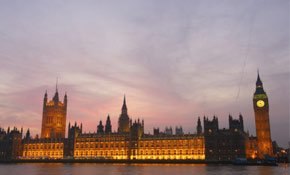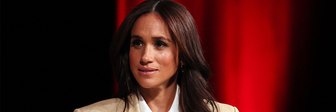Few people would deny that the sexual abuse of children is one of the most heinous of crimes. But in the light of the revelations of Jimmy Savile’s career as a sexual predator, something almost as alarming has emerged: the willingness of outsiders who suspect what’s going on to keep quiet about it. Now it is being proposed that covering up child abuse should become a criminal offence in itself. Is this the right approach and, if it is, how wide should the law stretch?
This week the government has been forced to set up two inquiries regarding child abuse. This follows not just the revelations surrounding Savile, Rolf Harris and others, but the allegation that there was an establishment cover-up of child abuse at Westminster thirty years ago.
Back in the 1980s a Conservative MP, Geoffrey Dickens, presented the Home Secretary of the day, Leon Brittan, with a set of documents which he believed showed that there was a paedophile ring operating in and around Westminster. Mr Dickens claimed he could name eight prominent figures in public life involved with the ring. Mr Brittan asked his officials to investigate but no further action was taken. Now many of the original documents presented by Mr Dickens have gone missing from Home Office files.
The current Home Secretary, Theresa May, told the House of Commons on Monday that she had asked the chief executive of the children’s charity, the NSPCC, to lead an inquiry into how her department had handled the matter of the Dickens’ files over the years. But she also set up a larger, Hillsborough-style inquiry under the retired appeal court judge, Dame Elisabeth Butler-Sloss, to look more broadly into how public bodies deal with the problem of child abuse inside their institutions.
What emerged so clearly from the Savile case and others is how many different public bodies have been implicated in instances of child abuse and their cover-up. Savile carried out his activities not only in NHS hospitals and publicly-run children’s care homes but also on BBC premises. And, perhaps most alarmingly of all, Parliament itself stands suspected of being heavily involved in covering up abuse committed by its members.
Whatever may or may not have been contained in the Dickens’ files, the case of the late Cyril Smith, a prominent Liberal MP, provides enough evidence to persuade many people that those at the top set out protect their own. The ability of Smith to evade prosecution for the abuse of children, of which he was widely suspected at the time and for which increasing evidence has emerged since his death, is attributed to the determination of the political establishment at Westminster to close ranks to avoid scandal. To many this seems akin to the way the Catholic Church, especially in Ireland, took every means available to it to hush up the abuse of children by priests in order to maintain the reputation and authority of the church.
Evidence that politicians have been willing do similar things also came from a Conservative whip in the Commons in the 1970s, the late Tim Fortescue. He recorded an interview years afterwards in which he said that whips in all parties had sought to help errant MPs in their care to keep out of the headlines if they had got into difficulties with, for example, financial shenanigans, or “small boys”.
One of the things the Butler-Sloss inquiry will look into is whether, in order to prevent such cover-ups happening in future, it should become a criminal offence to engage in a cover-up of child abuse allegations. In a change of policy this week, the NSPCC itself came out in favour of a limited form of such an offence.
The NSPCC wants it to be applicable to those running public institutions which have a duty of care to children who are apart from their parents: institutions such as boarding schools, care homes and hospitals. Peter Wanless, the head of the NSPCC, said: “If someone consciously knows that there is a crime committed against a child and does nothing about it because they put the reputation of the organisation above the safety of the that child, that should be a criminal offence.”
Some believe such a change in the law would not go far enough. Lady Walmsley, a Liberal Democrat peer, wants to amend the Serious Crimes Bill, now going through Parliament, so that it would become a criminal offence for someone in any public body, not just those caring for children separated from their parents, to cover-up suspicions of child abuse. Her point is that unless the cover-up offence is extended to all schools, most children in the country will not be protected by it.
The NSPCC does not favour so sweeping a brief for the proposed new law because it argues that the experience of other countries, such as Australia, which have introduced cover-up laws, shows that it can lead to the authorities being swamped by claims of alleged child abuse by witnesses anxious most of all to protect their own backs against accusations of having failed to report their suspicions.
It is this problem, among others, that has led some to doubt whether introducing a crime of failing to report suspected child abuse is a good idea at all. Alan Wood, the president of the Association of Directors of Children’s Services, argues that there is already in place a system for allegations of child abuse to be acted upon within public institutions caring for children. What is needed, he says, is for people working in such institutions to have “more confidence” in using the system and he wonders whether bringing in the criminal law would help to do that. Some would say, however, that the continuing abuse of children suggests the system is not yet adequate and that other things, including changing the law, need to be tried.
As the two inquiries get under way and as accusations of child abuse against prominent people continue to be made, it’s clear that the whole issue of child abuse will remain in the headlines. But there is one further question that some people want to ask: are we maintaining a sense of proportion? The very term ‘child abuse’ is, in their view, too all-encompassing. Should we be lumping under one label the rape of a three-year-old with the unwelcome touching of a fifteen-year-old? The obvious answer is: “of course not”. Yet some would say that recent high-profile cases have shown our inability or unwillingness to make such a distinction, so strong is our deep revulsion at the idea of child abuse.
- What’s your view?
- How widespread do you believe the covering up of child abuse cases continues to be?
- Do you think there was an establishment cover-up in the 1980s?
- Has the government done the right thing or not in setting up the two inquiries?
- Should covering up child abuse be a criminal offence and, if so, how broadly should the law extend?
- And do you think we are in danger of losing a sense of proportion on the whole issue, or not?










